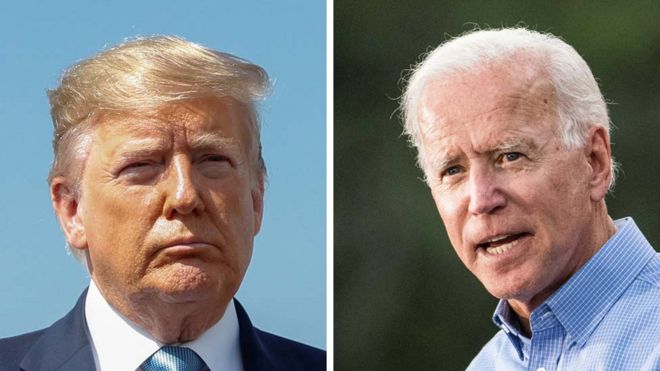
Trump's gut instinct to dispute expert medical advice, without any evidence, plays into the anti-establishment, anti-science and Christian fundamentalist sentiments nurtured in his base. /Reuters
Trump's gut instinct to dispute expert medical advice, without any evidence, plays into the anti-establishment, anti-science and Christian fundamentalist sentiments nurtured in his base. /Reuters
With U.S. President Donald Trump casting himself as the only candidate strong enough to take on China, the swing voters in 12 key battleground states of the country don't share his view of China as an urgent threat to the U.S., a new survey shows.
Just 20 percent call standing up to China a top security issue influencing their votes, according to Democratic pollster Geoff Garin of voters in 12 states most likely to determine control of the White House and the Senate.
And the global pandemic recently replaced terrorism as a predominant concern in the U.S.
"In March, just 25 percent of likely voters said they prioritized protecting the U.S. from pandemics, but the number has almost doubled, jumping to 45 percent, according to the survey. Only 29 percent in the battleground states listed terrorism as a top concern as they decide their votes in the election, including just 41 percent of Republicans," the survey said.
"The fact that terrorism's been replaced in this way, at least for this election, by keeping Americans safe from pandemics is a very significant development," said Garin, conductor of the poll for National Security Action.
"In the poll, six in 10 voters said Trump has made America less respected globally, while half say his leadership has made the U.S. less safe and increased the likelihood of a war. But Biden fares about the same on those questions, with 49 percent saying he would make America more respected as president and 46 percent saying he would make the U.S. safer," American broadcast television network NBC News reported on Monday.

Trump and Biden will have three live TV debates. /Reuters
Trump and Biden will have three live TV debates. /Reuters
The survey also offered a deep-dive into the politics around China.
"Despite Republicans' best efforts to scapegoat China, voters do not prioritize the issue. Nevertheless, Democrats' attacks on Trump's China policy polled more effectively than Trump's attacks on the Democratic ticket. Three in five voters prefer a constructive approach to China and largely support a message that confronts China but avoids conflict – a staple of the Democratic approach," the survey shows.
"Trump has insisted that China – not Russia – poses the biggest threat to the election while rebranding the coronavirus as the 'China virus' to shift blame," NBC noted.
"What people know about Trump and China is the trade war, but they don't view that as a success," Garin said.
U.S. President Donald Trump and his Democratic challenger, former U.S. Vice President Joe Biden, are going to hold their first presidential debate late Tuesday (local time) at Case Western Reserve University in Cleveland, Ohio. This is the first of three presidential debates; the others are scheduled for October 15 and 22.
The format for the first debate calls for six 15-minute segments dedicated to topics announced in advance to encourage deep discussion of leading issues faced by the country, according to a statement from the Commission on Presidential Debates.
The topics include COVID-19, race and violence in U.S. cities, and the economy, the statement noted.
There will also be a vice presidential debate set to take place on October 7 at the University of Utah in Salt Lake City, where current Vice President Mike Pence and Biden's running mate Senator Kamala Harris will confront each other.
(With input from agencies)